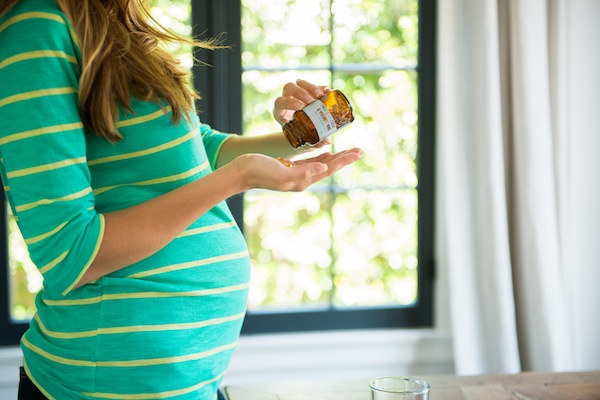When you learn you’re pregnant (congrats!), one of the first things your doctor discusses is the importance of taking DHA supplements. But what is DHA? What are the health benefits? How does it affect your growing baby?
The Basics of Omega-3s
A family of long-chain polyunsaturated fatty acids, Omega-3s are essential for your health and development. But your body doesn’t produce them, so you must get them from your diet or supplementation. Unfortunately, the typical American diet is greatly lacking in Omega-3s. The important nutrients eicosapentaenoic acid (EPA) and docosahexaenoic acid (DHA) are found in fish and algae. So, you should make it a priority to eat food rich in these or fill the nutritional gaps with a supplement to benefit.
The Importance of Omega-3s
Research indicates that the two most beneficial omega-3s are EPA and DHA. Studies show that each fatty acid has unique benefits and roles in the body. EPA supports the heart, immune system, and inflammatory response, while DHA supports the brain, eyes, and central nervous system.
The Benefits of Omega-3s
Established research on DHA supplementation during pregnancy has shown that it plays a substantial role in fetal and infant brain development, increasing IQ scores, lengthening attention spans, and enhancing fetal and infant eye development. According to WebMD,
Researchers found that infants born to mothers with higher blood levels of the omega-3 fatty acid DHA at delivery had advanced levels of attention spans well into their second year of life. During the first six months of life, these infants were two months ahead of those babies whose mothers had lower DHA levels.
A new study in The American Journal of Clinical Nutrition also supports that taking DHA helps with optimal pregnancy outcomes. It found that supplementing with 600 mg each day during the last half of pregnancy resulted in longer gestation, bigger babies, and fewer preterm births. It also prevents against postpartum depression. So, you can see how this makes DHA so important for pregnant and lactating women.
DHA Food Sources
Seafood (especially coldwater fish), algae, and fortified eggs. The healthiest (low mercury) fish with the highest DHA levels are wild salmon and sardines. Two 4-ounce pieces of wild salmon each week provides a healthy source of DHA. If seafood isn’t a large part of your diet or you want to optimize your health, Honest's DHA/Omega-3 Supplement is a great addition to your prenatal vitamins routine because it is free of toxins and contaminants, and it is made from highly purified fish oils.
Flaxseeds. Flaxseeds contain the omega-3 fatty acid alpha linolenic acid (ALA). The problem is that the body must convert ALA to DHA and it is inefficient at doing so.
Always make sure that you discuss supplementation with your healthcare provider. If your diet might be low in DHA, share this post with them to get the conversation started. Education is power!
Be Well, Be NutritionWise.
~ Nicole Meadow, MPN, RD, CSP, CLC
This post is solely for informational purposes. It is not intended nor implied to be a substitute for medical advice. Before undertaking any course of treatment or dietary changes, you should seek the advice of your physician or other health care provider.
We aim to provide you with the most honest and credible information possible. This article was reviewed for accuracy by The Honest Team and was written based on sources that are linked at the bottom of the article.
blog_review_statement




